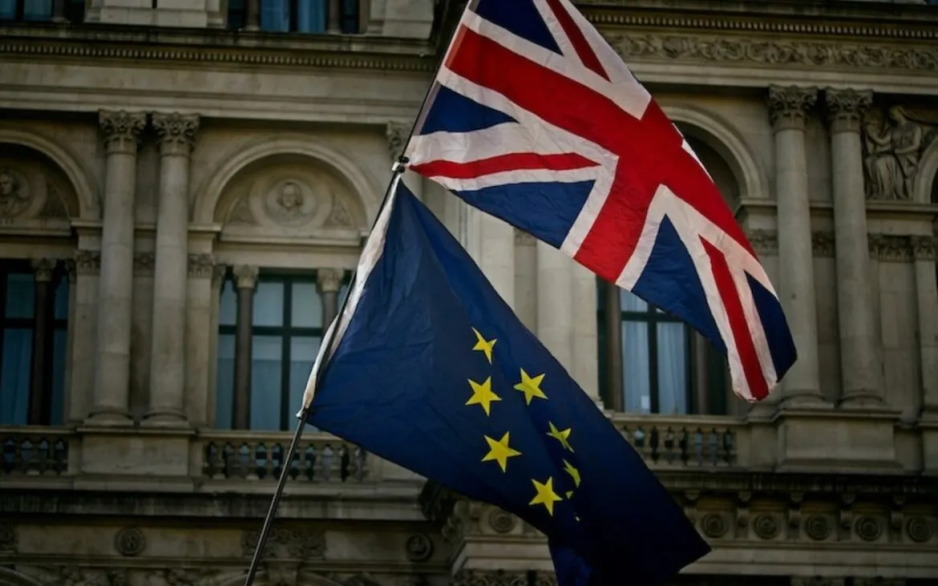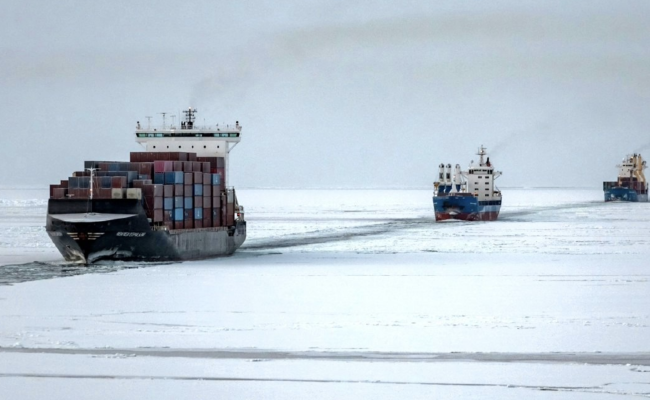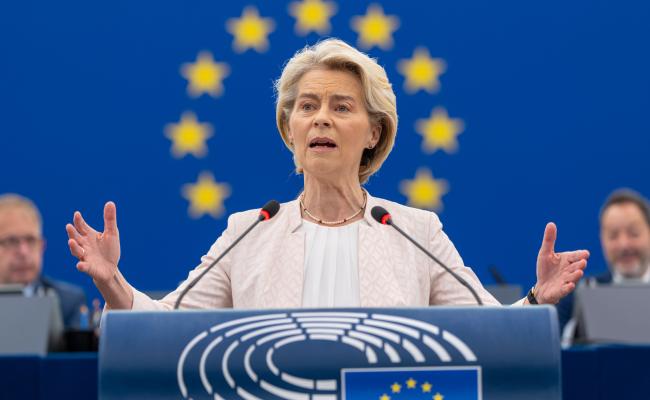UK Sanctions Target Russian Arctic LNG, With US Remaining on Sideline and EU Continuing Debate

Union Jack and EU flag. (Source: Garry Knight/Public Domain)
The UK increased pressure on Moscow with sanctions against major Russian oil companies, 44 shadow fleet vessels, and a Chinese gas import terminal. The impact of the sanctions remains to be seen as the US keeps on the sideline and debate in the EU about its 19th sanctions package is ongoing.
The United Kingdom has announced a massive new package directed at Russia’s oil and liquefied natural gas sector.
The new round of sanctions targets Russia’s largest oil companies, including giants Rosneft and Lukoil. Especially relevant for the country’s Arctic energy developments are new sanctions aimed at the Arctic LNG 2 project.
The UK included seven “shadow fleet” gas carriers in its latest measures.
All seven vessels have recently carried sanctioned liquefied natural gas from the Arctic to China and they routinely travel up and down the Norwegian coastline.
"We are sending a clear signal: Russian oil is off the market," said Chancellor of the Exchequer, Rachel Reeves.
We will hold to account all those enabling his illegal invasion of Ukraine
"As Putin’s aggression intensifies, we are stepping up our response. The UK will continue to strip away the funding that fuels his war machine. We will hold to account all those enabling his illegal invasion of Ukraine," she continued.
With the Trump Administration seemingly having little interest in placing further sanctions on Russia’s Arctic energy projects, the UK is now at the forefront of trying to curtail Russia’s revenues from energy sales.
While the Biden Administration announced measures against Arctic LNG 2 in quick succession throughout 2023 and 2024, there has been no action by the current White House since coming into office in January 2025.
Sanctions against Chinese terminal
The UK sanctions package also includes a Chinese terminal, Beihai, which began importing supercooled gas from the Arctic LNG 2 project last month. Russia’s flagship project had been unable to find any buyers for more than a year.
With the imports the Beihai facility in south China extended a critical lifeline to Arctic LNG 2.
Also read (the text continues)
The impact of the UK’s sanctions package, especially without similar actions from the US and EU, remains to be seen.
Chinese leadership has de facto “quarantined” the Beihai terminal – it now only receives deliveries from Russia – to the point where sanctions will have little impact on its operation.
Since accepting the first Russian cargoes deliveries from other countries have been rerouted away from Beihai.
As a result other shippers and importers in China don’t run the risk of being implicated in any actions against Beihai.
This preemptive action by Beijing shows how difficult it is to design effective sanctions; operations at Beihai appear set to continue without much interruptions.
Such actions would be a double-edged sword
Will US and EU follow
Only concerted action by the West including the threat of secondary sanctions against the terminal’s operator, state-owned company PipeChina, or other actors in China’s LNG sector could prove sufficient for Chinese leadership to reconsider its stance on Russian LNG.
But such actions would be a double-edged sword as Western energy companies, including BP and Shell, also have significant exposure to the Chinese market.
China’s recent decision to begin accepting imports of Russian LNG is as much a political statement as it is economic opportunism; Russian cargoes are significantly discounted.
As the trade war between the US and China continues to escalate, Beijing's welcoming of sanctioned Russian cargoes sends a clear message to Washington DC showing a further deepening of Russian-Chinese economic ties.
In the meantime, the EU continues to debate next steps. It remains unclear if last month’s efforts in Brussels to possibly phase out Russian LNG by January 2027, a full year ahead of previous plans, will find its way into the upcoming 19th sanctions package.
Discussions within the European Union for the upcoming measures are ongoing a month after the initial proposal. The issue of an accelerated phase-out of Russian LNG imports, reportedly, remains unresolved. Even the previously proposed timeframe to stop imports of pipeline gas and liquefied gas by early 2028 has yet to find unanimous support.



